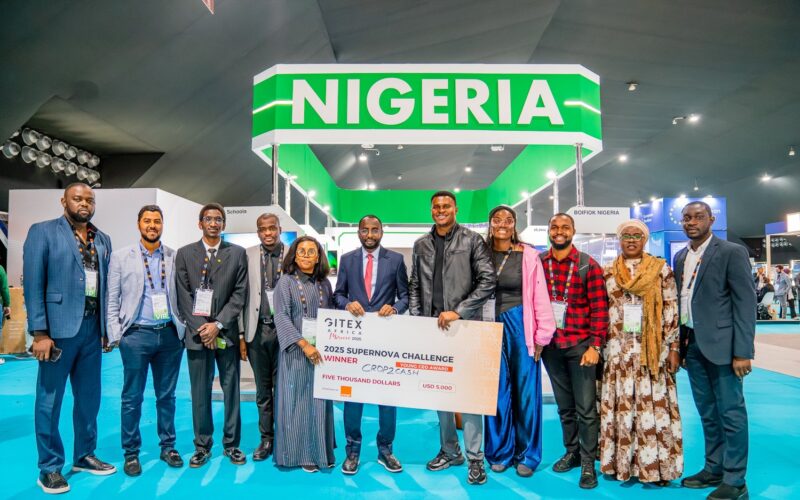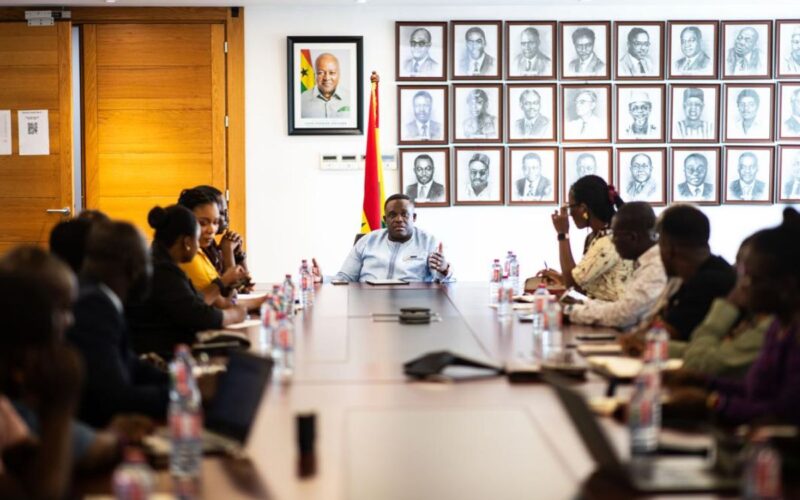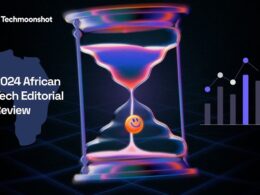In the heart of West Africa, where the Niger River meets the Atlantic Ocean, a digital revolution is quietly reshaping the destiny of 220 million people. Nigeria, once known primarily for its oil wealth and Nollywood films, has emerged as something far more profound: Africa’s undisputed technology capital and the continent’s bridge to digital sovereignty.
This isn’t just another tech story. It’s the narrative of a nation that refused to remain a passive consumer in the global digital economy, choosing instead to become its architect.
The Genesis of Digital Sovereignty
The transformation didn’t happen overnight. For decades, Nigeria watched as Silicon Valley, Shenzhen, and Bangalore captured the world’s imagination with their technological prowess. But something fundamental shifted in the last decade—Nigeria decided it was tired of being on the sidelines of the digital revolution.
Today, as President Bola Ahmed Tinubu’s administration sets its sights on a $1 trillion economy by 2030, technology isn’t just part of the strategy—it is the strategy. The upcoming GITEX NIGERIA, premiering across Abuja and Lagos from September 1-4, 2025, represents more than an event; it’s a declaration of intent.
“We must seize this opportunity to demonstrate what is possible in our tech ecosystem,” declares Hon. Dr. Bosun Tijani, Nigeria’s Minister of Communications, Innovation, and Digital Economy. His words carry the weight of a nation’s ambition—to evolve from being passive consumers of AI to becoming net producers of talent and solutions that compete globally.
The Lagos Phenomenon: Where Africa’s Future Takes Shape
Walk through Victoria Island on any given morning, and you’ll witness something remarkable. Young entrepreneurs hunched over laptops in co-working spaces, pitching ideas that could revolutionize everything from agriculture to healthcare. Venture capitalists from Silicon Valley, London, and Singapore making their pilgrimages to discover the next Paystack or Flutterwave.
Lagos isn’t just Nigeria’s commercial capital anymore—it’s become Africa’s startup Mecca. Home to 23 of the country’s 28 fastest-growing companies according to the Financial Times, the city pulses with an energy that’s both infectious and transformative.
“Lagos is and continues to be a city that facilitates progress,” reflects Governor Babajide Sanwo-Olu. “We’re building our city into the preferred destination for innovation and digital solutions.” His vision extends beyond municipal pride—it’s about positioning Lagos at the heart of Africa’s digital future.
The Talent Revolution: Building Tomorrow’s Workforce
But perhaps Nigeria’s greatest asset isn’t its natural resources or even its massive consumer market—it’s its people. With over 100 million people under the age of 35, Nigeria possesses what demographers call a “youth dividend.” The question was never about having young people; it was about giving them the skills to thrive in a digital economy.
The answer came in the form of systematic talent development. From coding bootcamps in universities to AI literacy programs for government officials, Nigeria has embarked on an ambitious mission to upskill its workforce. The National Information Technology Development Agency (NITDA), under Kashifu Inuwa Abdullahi’s leadership, has become the architect of this transformation.
“We are committed to cultivating a Nigerian digital ecosystem that becomes a global benchmark for equitable AI advancement,” Abdullahi explains. This isn’t just about technology adoption—it’s about ensuring that AI development in Nigeria reflects Nigerian values, solves Nigerian problems, and creates Nigerian prosperity.
Global Giants Recognize the Opportunity
The world has taken notice. IBM, through its partnership with MIBB, has reaffirmed its commitment to West Africa, recognizing Nigeria as a strategic priority. “Nigeria offers a valuable opportunity to deepen collaboration and co-create technologies that empower industries and communities,” notes Vishnu Taimni, General Manager of IBM operated by MIBB.
This isn’t charity or corporate social responsibility—it’s business. With a rapidly growing middle class, increasing internet penetration, and a government committed to digital transformation, Nigeria represents one of the world’s most promising emerging markets.
Amazon Web Services, Cisco, and other tech giants have followed suit, establishing partnerships and local operations. The message is clear: Nigeria isn’t just a market to be served—it’s a talent pool to be nurtured and a innovation hub to be supported.
The Startup Renaissance: From Idea to IPO
The numbers tell a compelling story. Nigerian startups raised over $800 million in 2023, accounting for more than 30% of all venture capital funding in Africa. But behind these statistics are human stories of perseverance, innovation, and audacious dreams.
Take Paystack, which sold to Stripe for $200 million, or Flutterwave, now valued at over $3 billion. These aren’t just business success stories—they’re proof of concept for an entire ecosystem. They’ve shown that Nigerian entrepreneurs can build world-class products that compete globally.
The upcoming GITEX NIGERIA Startup Festival represents the next evolution of this ecosystem. It will be Nigeria’s largest and most globally diverse investor program, creating curated meetings between startups, investors, and industry leaders. The United Nations Development Programme’s timbuktoo initiative, the largest startup support program in the world, will be present—a testament to the global significance of Nigeria’s entrepreneurial ecosystem.
The Infrastructure Foundation: Building for Scale
None of this would be possible without the foundational infrastructure investments that have been years in the making. From submarine fiber optic cables to 4G network expansion and now early 5G deployments, Nigeria has been methodically building the digital highways that will carry its economic future.
The Federal Ministry of Communications, Innovation and Digital Economy, in collaboration with NITDA, has created policy frameworks that balance innovation with regulation, foreign investment with local development, and growth with equity.
Challenges as Catalysts
Nigeria’s tech journey hasn’t been without obstacles. Power infrastructure remains inconsistent. Currency volatility creates uncertainty for both local startups and foreign investors. Regulatory frameworks sometimes struggle to keep pace with technological innovation.
But perhaps Nigeria’s greatest strength lies in how it has turned these challenges into catalysts for innovation. Intermittent power led to innovations in energy-efficient computing. Currency challenges sparked the growth of local payment systems. Regulatory gaps created opportunities for fintech solutions that leapfrogged traditional banking.
The Continental Vision: From Local to Pan-African
Nigeria’s ambitions extend beyond its borders. As Africa’s largest economy and most populous nation, Nigeria sees itself as the catalyst for continental digital transformation. The African Continental Free Trade Area (AfCFTA) provides a framework for Nigerian tech companies to scale across the continent’s 1.3 billion people.
Companies like Interswitch, which processes millions of transactions across multiple African countries, or Andela, which has trained thousands of software developers across the continent, demonstrate how Nigerian innovation can have pan-African impact.
The Next Chapter: AI and Beyond
As artificial intelligence reshapes global economies, Nigeria is positioning itself not just as a consumer but as a creator of AI solutions. The focus on culturally relevant AI models, supported by upcoming legislation like the Data Harmonisation Act, reflects a sophisticated understanding that technology must serve local needs to create lasting value.
The Government Leadership & AI Summit opening GITEX NIGERIA in Abuja signals this ambition. When government leaders, tech entrepreneurs, and international partners converge to discuss AI’s future in Nigeria, they’re not just planning for technological adoption—they’re architecting digital sovereignty.
The $1 Trillion Vision: From Dream to Destiny
President Tinubu’s vision of a $1 trillion economy by 2030 might seem audacious, but the building blocks are already in place. A thriving tech ecosystem, global partnerships, systematic talent development, and supportive government policies create a foundation for exponential growth.
This isn’t just about economic statistics—it’s about redefining Nigeria’s place in the world. From a nation dependent on oil exports to a hub of technological innovation. From a consumer of foreign technology to an exporter of digital solutions. From the periphery of the global economy to its center stage.
Conclusion: The Renaissance Unfolds
As GITEX NIGERIA prepares to welcome the world to Abuja and Lagos, it represents more than a technology conference—it’s the unveiling of Nigeria’s digital renaissance. A story of transformation that began in the minds of young entrepreneurs, was nurtured by visionary leaders, and is now ready to inspire the world.
The next chapter of Nigeria’s story isn’t being written in oil fields or government offices—it’s being coded in Lagos co-working spaces, designed in Abuja innovation labs, and scaled through partnerships that span continents.
Nigeria’s digital revolution is no longer a promise—it’s a present reality with a future that’s being built, one line of code at a time. And the world is watching, learning, and investing in what might just be the most important tech story of our time.
The giant has awakened. The renaissance has begun. And this is just the beginning.
As Nigeria prepares to host GITEX NIGERIA from September 1-4, 2025, the world will witness not just a technology event, but a nation announcing its arrival as a global digital power. The question isn’t whether Nigeria will achieve its trillion-dollar economy goal—it’s how quickly the world will recognize that the future of technology has found a new home in West Africa.












